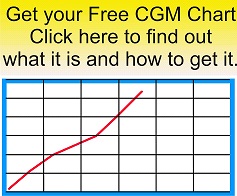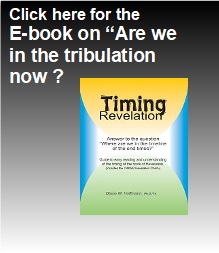Transcript
of Radio Show #386:
Book of Deuteronomy, Part 9
A new series in the Old Testament, beginning with the book of
Deuteronomy, the last book of the Pentateuch.
Radio Show...
This program continues on various series of different topics of Bible studies and theology such as end times, prophecies, Old Testament, New Testament, daily living, etc. as the subject matter comes up.
The e-book on End times, Prophecies and Revelation, answering the questions “where are we in the events of the end times?” and “Are we now in the tribulation?” is available on this web site, which you can find throughout the pages.

Opening Narrative
Hello and welcome to another exciting radio program today on end times and prophecies and scriptures to live by... which is all about old-time gospel and worship music, praying for needs and preaching the Word of God....
And remember this radio programs Virtual Church for the Spiritual Unchurched is broadcast every Sunday at 7 am and 7 pm pacific time... and if you unfortunately miss it for whatever reason at any time, you can hear the program any time after that for 4 weeks...at my web site TimingRevelation.com
So, we continue today in the new series started a few weeks ago, based on my book “The Horizontal Chronology of the Four Gospels”...
And I did mention to you before that with this series begins the start of the 8th year of these radio programs Virtual Church for the Spiritual Unchurched.
As you already know In this series we look at the four gospels in a new light as they are presented by chronological events taking place within the four gospels of Matthew, Mark, Luke and John which are presented separately in the Bible ...
It is all the same gospel.... but in chronological order of events taking place, which lets us hear or see side by side who reported and what each said on these events taking place in the gospels.
So, we continue today, with the new series from the book of Deuteronomy in the Old Testament, which is a review by Moses of the previous three books of the Old Testament.
We will begin here right after this opening music, prayer and worship...
Prayer
Praise God Doxology
Worship music
Narrative 1
Alright so let's continue here still in chapter 14 of the book of Deuteronomy,
picking up from verses 22 to 29, about a new subject matter...
The law of the tithe or the principles of tithing:
and I'll read from to the King James Version of the Bible, changing the thous and thys, etc. as I go along:
22_”Thou shalt truly tithe all the increase of thy seed, that the field bringeth forth year by year.
23_”And thou shalt eat before the Lord thy God, in the place which he shall choose to place his name there, the tithe of thy corn, of thy wine, and of thine oil, and the firstlings of thy herds and of thy flocks; that thou mayest learn to fear the Lord thy God always.
So here it specifically speaks of the time of the feast where they were to eat their portion in the place specified of the Lord. But if this godly place was too far to carry the heavy tithe portion portion, then they could sell the portion to another designated place where they could buy whatever they wanted and eat it there... so that's in the next verse:
v. 24_”And if the way be too long for thee, so that thou art not able to carry it; or if the place be too far from thee, which the Lord thy God shall choose to set his name there, when the Lord thy God hath blessed thee:
25_”Then shalt thou turn it into money, and bind up the money in thine hand, and shalt go unto the place which the Lord thy God shall choose..
26 _”And thou shalt bestow that money for whatsoever thy soul lusteth after, for oxen, or for sheep, or for wine, or for strong drink, or for whatsoever thy soul desireth: and thou shalt eat there before the Lord thy God, and thou shalt rejoice, thou, and thine household,
So in other words this was a time of celebration. Much as we do here when we get our wages, we go and do some shopping and then enjoy what we bought. Only here they were to celebrate in a specific place where the Lord would be honoured.
That reminds me of a Hebrew course I took once, where we learned about the set up of their religious places -- even today -- and I can't remember the proper terminology of this – but it has to do with the locality of the types of religious places, what would be like our churches for example...
...for them the main religious place is the Temple, then if you live far from the Temple and can't go there on a weekly or monthly basis for example, for various duties to be engaged, you would then have the local synagogue, and then if you were in a rural type of place further away where there are no synagogue, you then would have another designated religious location to go to and do your religious duties. And again I don't remember what the term for this is.
So that's what the scripture is talking about regarding the places the Lord set up for them to carry out their various religious duties.
And the next verses speaks of the priest who were not given a land but who depended on the people for their living needs...
27_”And the Levite that is within thy gates; thou shalt not forsake him; for he hath no part nor inheritance with thee.
Verse 28_”At the end of three years thou shalt bring forth all the tithe of thine increase the same year, and shalt lay it up within thy gates:
29_”And the Levite, (because he hath no part nor inheritance with thee,) and the stranger, and the fatherless, and the widow, which are within thy gates, shall come, and shall eat and be satisfied; that the Lord thy God may bless thee in all the work of thine hand which thou doest
Music Interlude...
Narrative # 2
Alright let's continue with chapter 15 of the book of Deuteronomy...
verses 1 to 6, on “the year of release”, or “the shmittah”, or “the year of cancelling debt”, according to the headings of 3 different Bibles, 1 English, 1 Jewish, and 1 English with Jewish commentaries.
And I will read the commentaries of each one of them as we go along:
So, First, the English from the King James Bible, verses 1 and 2:
v.1_“At the end of every seven years thou shalt make a release.
v.2_“And this is the manner of the release: Every creditor that lendeth ought (anything) unto his neighbour shall release it (shaw-mat' = to let drop—or to drop it); he shall not exact it of his neighbour, or of his brother; because it is called the Lord's release.
Now from the Liberty Commentary Bible, it says: “Here Moses gives the regulations regarding the year of release (every seventh year). Israelites were not to be pressed to pay their debts during this year. The phrase “At the end” is included because debts were not paid until the crops were gathered and the farmer had made his profit. Then he could pay his debts.
“However, the seventh year was different. The word “release” meant literally, “to let lie down” or to “let go”...
now here there is something which seems to me to be contrary to the what the Word actually says, but I will read it as written by the Liberty Commentary Bible and then make a further comment...
so it continues, “This does not signify a remission of the debt, or that debtors were to be released from all claims against them. It meant simply that the time of payment was extended for one year. The phrase “he shall not exact it” meant “thou shalt not press thy neighbor.” At the end of seven years all of the debts that had been contracted were extended for another year. The debts were forgiven in the year of jubilee (every fiftieth year). This was seven sabbatical years plus one (Lev. 25:10).”
So, this I do not see written in the Bible that it is extended for another year and then forgiven in the year of jubilee... where they get it from I don't know. So that would be a good misunderstanding to research.
But here's what the “Complete Jewish Study Bible” says about this verse: “At the end of every seven years you are to have a sh'mittah. The sh'mittah year is the seventh year of Israel's seven-year agricultural cycle, as mandated in the Torah. As with Shabbat (Sabbath), every seven years the land is likewise provided a rest from agricultural activity. When Adonai gave his Torah to Moshe, Shabbat observance was mandated (Exod. 31:12-17) throughout their generations as an everlasting covenant. In light of the sh'mittah, Shabbat applies to the cycle of “sevens” in both weeks and years.”
So as we can see, it does not explain much of the subject matter that we saw earlier from the English Bible.
And, the “Complete Jewish Study Bible”, says of this verse: “Canceling debts”. “The canceling of debts was widespread in the ancient Near East but was almost exclusively determined by the edicts of kings. Debt release in the Bible was part of the calendar cycle of seven years, regardless of kingly compassion.”
So, again, this commentary does not get into any depth of explanation on the full matter either. So it would definitely require further research to understand it fully...
so, for now, let's continue...
verse 3_“Of a foreigner thou mayest exact it again” (speaking of the debt) “but that which is thine with thy brother thine hand shall release;”
In other words, “Of a foreigner you may require it; but you shall give up your claim to what is owed by your brother.” (NKJ)
the Liberty Commentary Bible says here: “The Israelites were allowed to press foreigners among them for their loans; but they were not allowed to press their brethren, remembering that once they had been in bondage in Egypt.”
Verse 4_”Save when there shall be no poor among you; for the Lord shall greatly bless thee in the land which the Lord thy God giveth thee for an inheritance to possess it:
v.5_”Only if thou carefully hearken unto the voice of the Lord thy God, to observe to do all these commandments which I command thee this day.
v.6_”For the Lord thy God blesseth thee, as he promised thee: and thou shalt lend unto many nations, but thou shalt not borrow; and thou shalt reign over many nations, but they shall not reign over thee.” So this was a promise the Lord gave them at this time.
on this the Liberty Commentary Bible adds: “The phrase “Save when there shall be no poor among you” seems to be inconsistent with verse 11, which states, “For the poor shall never cease”. Actually, in verse 4 it means, “die from neglect”. The Israelites could kill off the poor by demanding their loans or by not giving charity to them in the prescribed manner. God promised He would bless those who gave charity to the poor. The basis of charity was “the Lord thy God giveth thee”. Beyond this, Israel was promised that she would lend to many nations and rule over them. Perhaps this is a prophecy about the future financial expertise of the Jews in that those who borrow are servants to those who lend (Prov. 22:7).”
We will continue on, picking up from here, right after this...
Music Interlude...
Station ID...
Narrative #3
Alright let's now continue on with verse 7 to v. 11 of
chapter 15 of the book of Deuteronomy, which is about the
“lending to the poor”
v.7_”If there be among you a poor man of one of thy brethren within any of thy gates in thy land which the Lord thy God giveth thee, thou shalt not harden thine heart, nor shut thine hand from thy poor brother:
8_”But thou shalt open thine hand wide unto him, and shalt surely lend him sufficient for his need, in that which he wanteth.
9_”Beware that there be not a thought in thy wicked heart, saying, The seventh year, the year of release, is at hand; and thine eye be evil against thy poor brother, and thou givest him nought; and he cry unto the Lord against thee, and it be sin unto thee.
10_”Thou shalt surely give him, and thine heart shall not be grieved when thou givest unto him: because that for this thing the Lord thy God shall bless thee in all thy works, and in all that thou puttest thine hand unto.
Like in other words you give without worrying as to whether he will pay you back or not...
11_”For the poor shall never cease out of the land: therefore I command thee, saying, Thou shalt open thine hand wide unto thy brother, to thy poor, and to thy needy, in thy land.
on this the Liberty Commentary Bible says: “But some of the crafty Israelites might be reluctant to lend money to the needy immediately before the year of release. They are warned not to have a “thought in thy wicked heart”, which meant “a word in thy heart of worthlessness”.
They were commanded to give to the needy, so that “thine heart shall not be grieved”, which means that their heart would not become evil. Since there will always be poor people, Israel was commanded to open its hand to them.”
and the Jewish Voice Study Bible says of this: “There will always be poor people in the land. Compassion for the disenfanchised was considered the duty of a good king in the ancient world. One of the biggest prophetic complaints was the failure of Israel's elite to care for the poor and oppressed. The Bible emphasizes the duty of both the powerful and the common person to care for the poor.
“Jesus seems to have hinted at this verse when he said, “The poor you will always have with you” (Mark 14:7). Jesus defended the woman who had anointed him with expensive perfume from the accusation that the money used to buy the perfume should have been given to the needy. Jesus at once affirmed the woman and pointed out to her accusers that if they wanted to help the needy, the needy were always present. There is a strong current of being open handed toward the poor and needy throughout the entire Biblical narrative.”
Now I don't know about you but I have often wandered how it will be in the millennium about the government ruling... and all this that we read here in the book of Deuteronomy is what it will be... the responsibility to care for the poor and needy will be that of every person...
every one will be responsible to care for his/her neighbour... and every neighbour will be responsible to take care of their family and their parcel of land – so that no poor or needy will be in that state because of the lack of their own life situation – in other words their need or poverty will have to be genuine and not a result of their lazyness – or negligence -- i.e.:
Proverbs 10:4:
"He who has a slack hand becomes poor, but the hand of the diligent makes rich."
Proverbs 13:4:
"A sluggard's appetite is never filled, but the desires of the diligent are fully satisfied."
Proverbs 19:15:
"Laziness brings on deep sleep, and the shiftless go hungry."
Proverbs 20:4:
"Sluggards do not plow in season; so at harvest time they look but find nothing."
Proverbs 26:15:
"A sluggard buries his hand in the dish; he is too lazy to bring it back to his mouth."
Wow that's pretty serious...
These proverbs point out that laziness is not a genuine reason for being poor and needy – that leads to lack of provision, opportunities and the required work ethics to make it in life. Rather diligence and hard work is encouraged as responsibility for all individuals.
Music Interlude...
Closing Narrative…
Oh how wonderful to appreciate what Jesus has done in our lives to save us from sin by Grace... and how He continues to keep us by His on-going and unlimited Grace...
...that wonderful Grace that comes into our life the moment that we receive Him as for who He is -- the Saviour of mankind and of every individual like you and me personally...
... and this Jesus the Son of God who came to give His life for you and me is the same Jesus who's life we've been reading about in these series of programs right now, and who's death on the cross we will see as we go through the gospel story to where He gave Himself as the sacrificial Lamb of God that took the sin of the world...
...but right now, the question is:
...do you know this Jesus that we're talking about? If you don't know the Lord...
...Just say this prayer, “Lord come into my heart, come into my life, I turn to you right now and ask for forgiveness, I repent of my sins and receive your work on the cross... I receive your gospel as it was delivered through your blood shed on the cross in my place, and I thank you, Amen...
The Blessing
Before I dismiss the service today, I want to read to you the Blessing that was read to the people of God in Numbers 6:24-26 which is the benediction from God to you today:
“The Lord bless thee, and keep thee: The Lord make his face shine upon thee, and be gracious unto thee: The Lord lift up his countenance upon thee, and give thee peace."
I hope and pray that you will come back next Sunday at SpiritFM.ca, 7 am and 7 pm pacific time. And if you want to hear the service again at any time, you can go to my website at TimingRevelation.com, and click on the Radio Shows navigational tab along the left side. The replays are available there for five weeks, then they are transcribed into articles as new radio shows are put up.
I encourage you to go to your Bible and read further on the scriptures that were given throughout the program today. And if you like these programs and you've been blessed, call or write the station and let them know... if you said the prayer and have accepted the Lord or you've been healed or touched in some way by the Holy Spirit, write to me on the contact form of this web site...
...and this web site is also where you will find the Free Offer of the “Christian Growth and Maturity Chart” that I talked to you about in the last weeks... you will see the graphic on any page called “Get your free CGM Chart”, click on it and it will take you to a page that will tell you about it and how you can subscribe to my newsletter to get your free copy of the Chart sent to you.
Until next week, Maranatha, the Lord is coming, very soon. Goodbye and Blessing.
/DMH
Click here to hear the song "Rurn Your Radio On".
and Click here for Update on Randy Travis:
/DMH
click on the graphic just above to share your thoughts...
or
click on this graphic to go to Christianbook affiliate store products:

P.S.: For your information I am a participant of the Christianbook affiliate program and as such will receive a small commission on purchases made by my readers. I want to thank you for buying your Christian products through here... all of this helps me with the expenses of providing this important ministry and operating this web site.
Blessings,



